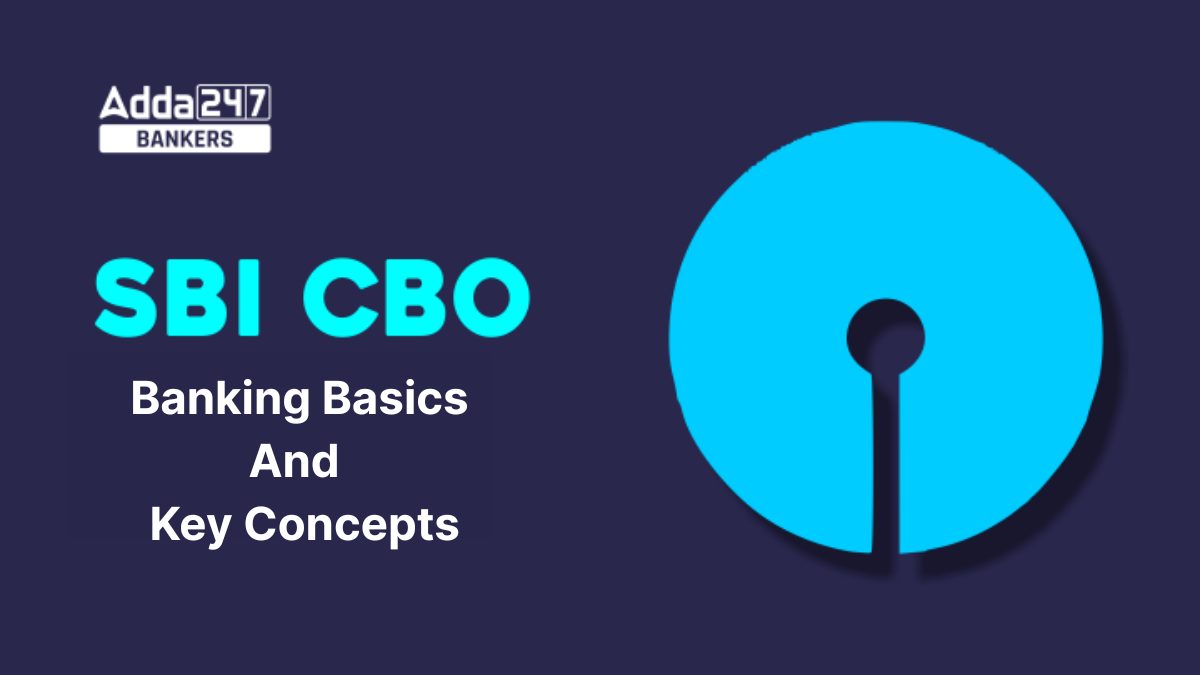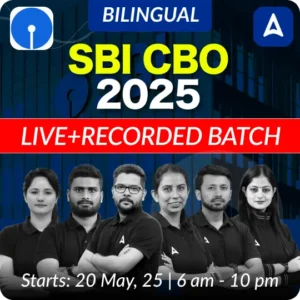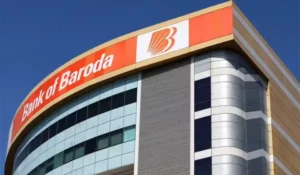To crack the SBI CBO 2025 exam, having a solid understanding of fundamental banking concepts is crucial. The role of a Circle Based Officer demands both practical knowledge and a strong grasp of essential banking terminologies, operations, and regulatory frameworks. From core banking functions to financial inclusion initiatives, candidates are expected to be well-versed in a wide range of topics. This foundational knowledge not only helps during the online test but also proves valuable in the interview round. If you’re targeting SBI CBO 2025, now is the time to revise and strengthen your banking basics.
Key Concepts You Should Know for SBI CBO 2025
Banking refers to the activities of accepting deposits and lending money to individuals and businesses. Banks act as financial intermediaries that help channel funds from savers to borrowers. Apart from lending and borrowing, banks also provide various services like money transfer, digital banking, foreign exchange, and investment facilities.
Types of Banks in India
There are several types of banks that operate under the supervision of the Reserve Bank of India (RBI):
1. Commercial Banks
These include public sector banks like SBI and private sector banks like HDFC. They provide banking services to the public and businesses.
2. Cooperative Banks
These banks are owned and operated by their members. They serve rural and semi-urban areas.
3. Regional Rural Banks (RRBs)
RRBs are sponsored by public sector banks and focus on agricultural and rural development.
4. Small Finance Banks
They provide basic banking services to small businesses, micro industries, and low-income households.
5. Payments Banks
They offer services like deposits and money transfers but cannot give loans or issue credit cards.
Functions of Banks
Banks perform several important functions that support the economy:
- Accepting Deposits: Savings accounts, current accounts, and fixed deposits.
- Providing Loans and Advances: Home loans, personal loans, and business loans.
- Remittance Services: NEFT, RTGS, IMPS, and UPI.
- Digital Banking: Internet banking, mobile banking, and digital wallets.
- Foreign Exchange Services: For travellers and businesses involved in international trade.
Important Banking Terms
1. Repo Rate
It is the rate at which RBI lends money to commercial banks. When the repo rate increases, borrowing becomes expensive.
2. Reverse Repo Rate
It is the rate at which banks park their surplus funds with the RBI. It helps in managing liquidity in the system.
3. CRR (Cash Reserve Ratio)
The percentage of total deposits that banks are required to keep with the RBI in cash form.
4. SLR (Statutory Liquidity Ratio)
The percentage of deposits that banks must maintain in the form of liquid assets like gold or government securities.
5. NPA (Non-Performing Asset)
A loan that has not been repaid for more than 90 days is treated as an NPA.
6. Base Rate and MCLR
These are the minimum interest rates below which a bank cannot lend. MCLR has replaced the base rate system in most banks.
Banking Regulatory Bodies
1. Reserve Bank of India (RBI)
RBI is the central bank of India. It regulates the banking system, manages monetary policy, and ensures financial stability.
2. NABARD
The National Bank for Agriculture and Rural Development promotes rural development and provides credit support to farmers.
3. SEBI
Though not directly related to banking, SEBI regulates the capital market, which banks participate in.
4. IRDAI
Insurance Regulatory and Development Authority of India supervises the insurance sector.
Priority Sector Lending (PSL)
Banks are required by the RBI to lend a certain percentage of their loans to specific sectors like agriculture, micro and small enterprises, education, and housing. This helps in inclusive growth.
Know Your Customer (KYC)
KYC is a process to verify the identity of bank customers. It includes submission of documents like Aadhaar, PAN, and proof of address. It helps prevent money laundering and fraudulent activities.
Latest Trends in Banking
- Digital Banking
With the rise in internet usage, digital banking services like UPI, mobile apps, and e-wallets have become very common. - Fintech Integration
Banks are increasingly collaborating with fintech companies to offer faster and smarter services. - Cybersecurity
Banks are investing in security technologies to protect customer data and financial transactions.
Payment Systems: NEFT, RTGS, UPI & IMPS
In today’s digital banking ecosystem, understanding payment systems is essential for candidates preparing for the SBI CBO 2025 exam. These systems ensure smooth, secure, and fast transactions across the country, both for individuals and businesses. Here’s a quick overview of the major ones:
NEFT (National Electronic Funds Transfer): NEFT allows fund transfers from one bank account to another on a one-to-one basis. It works in half-hourly batches and is available 24×7. It’s commonly used for small to medium transactions, and the money is usually credited within a few hours.
RTGS (Real-Time Gross Settlement): RTGS is meant for high-value transactions. It settles funds in real-time and individually, not in batches. The minimum amount for RTGS is ₹2 lakh. It’s ideal when immediate fund transfer is needed with assured settlement.
UPI (Unified Payments Interface): UPI is a revolutionary system that enables instant money transfer using a mobile device. It operates 24×7 and links multiple bank accounts in a single app. UPI has become the most widely used payment method due to its convenience and zero transaction fees for most users.
IMPS (Immediate Payment Service): IMPS facilitates instant interbank fund transfer through mobile phones, ATMs, and internet banking. It’s available 24×7, including holidays. Unlike NEFT, IMPS is a real-time fund transfer system and suitable for immediate small transactions.




 Daily Current Affairs Quiz 23rd February...
Daily Current Affairs Quiz 23rd February...
 Bank of Baroda Office Assistant Exam Ana...
Bank of Baroda Office Assistant Exam Ana...
 Bank of Baroda Office Assistant Memory B...
Bank of Baroda Office Assistant Memory B...








